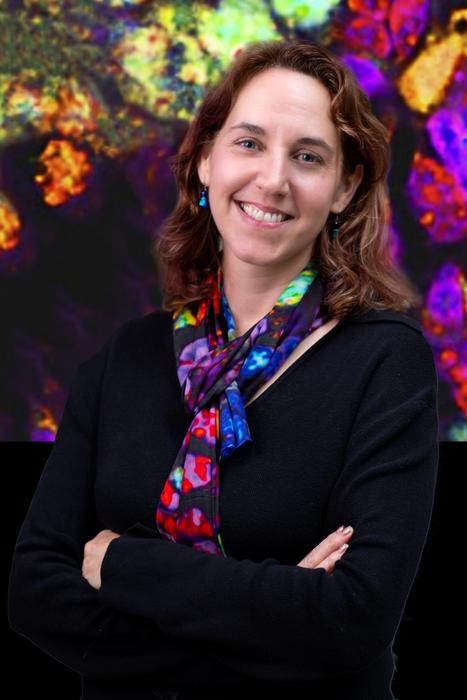LA JOLLA—Salk Institute Professor Susan Kaech has been elected to the U.S. National Academy of Sciences. Kaech is one of 120 new members and 24 international members to be elected to the academy in recognition of their distinguished and continuing achievements in original research. The election is considered one of the highest honors accorded to a scientist in the United States. Kaech’s work has transformed the fields of immunology and cancer biology and inspires new approaches to cancer immunotherapy. Her recognition brings the number of Salk faculty elected to the National Academy of Sciences to 13.

Credit: Salk Institute
LA JOLLA—Salk Institute Professor Susan Kaech has been elected to the U.S. National Academy of Sciences. Kaech is one of 120 new members and 24 international members to be elected to the academy in recognition of their distinguished and continuing achievements in original research. The election is considered one of the highest honors accorded to a scientist in the United States. Kaech’s work has transformed the fields of immunology and cancer biology and inspires new approaches to cancer immunotherapy. Her recognition brings the number of Salk faculty elected to the National Academy of Sciences to 13.
“Sue’s work continues to shape the way we understand and treat viral infection, chronic disease, and cancer,” says Salk Institute President Gerald Joyce. “We are inspired by her considerable influence on the field of immunobiology and thrilled to see her recognized by the prestigious National Academy of Sciences.”
Kaech is director of the NOMIS Center for Immunobiology and Microbial Pathogenesis and holder of the NOMIS Chair at Salk. Her discoveries have contributed significantly to the modern understanding of long-term immunity and how memory T cells form. Memory T cells are critical for maintaining long-term immunity during acute and chronic infections, and can also be suppressed in cancer. Kaech identified several genes and signaling molecules that are critical for memory T cell generation during immune responses. She also helped establish the field of cancer immunometabolism through her characterization of the metabolic interplay between tumors and immune cells, and how changes in nutrient availability can lead to metabolic immune suppression in tumors. Working with long-time collaborator Salk Professor Gerald Shadel and team, Kaech’s lab recently discovered that rewiring the flow of electrons in tumor mitochondria can enhance the immune system’s ability to recognize and fight cancer. Kaech’s lab is now moving into a new direction in neuroimmunology, inspired by their finding that T cells listen to neurotransmitters released by neighboring neurons, regulating their anti-viral and anti-tumor functions.
Kaech is also a member of the American Academy of Arts and Sciences and a Fellow of the American Association for the Advancement of Science. She has received numerous awards including a Howard Hughes Medical Institute Early Career Scientist award, the National Institutes of Health Presidential Early Career Award for Scientists and Engineers, the Burroughs Wellcome Fund Career Award in the Biosciences, and the Damon Runyon-Walter Winchell Cancer Research Fellowship, among others. She was also recently elected to the American Association of Immunologists Council, which serves as the largest and most influential organization to advance the knowledge of immunology and medical research in the country.
The National Academy of Sciences is a private, nonprofit institution that was established under a congressional charter signed by President Abraham Lincoln in 1863. It recognizes achievement in science by election to membership, and—with the National Academy of Engineering and the National Academy of Medicine—provides science, engineering, and health policy advice to the federal government and other organizations.
About the Salk Institute for Biological Studies:
Unlocking the secrets of life itself is the driving force behind the Salk Institute. Our team of world-class, award-winning scientists pushes the boundaries of knowledge in areas such as neuroscience, cancer research, aging, immunobiology, plant biology, computational biology, and more. Founded by Jonas Salk, developer of the first safe and effective polio vaccine, the Institute is an independent, nonprofit research organization and architectural landmark: small by choice, intimate by nature, and fearless in the face of any challenge. Learn more at www.salk.edu.




